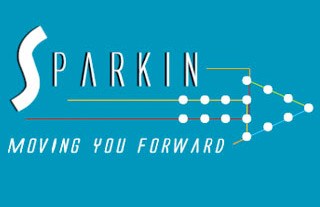IS YOUR SUCCESS A CONSCIOUS CHOICE?
YOUR SUCCESS IS…..?
‘You can’t wait for inspiration. You have to go after it with a club.’ (Jack London)
I believe we also need to pursue success with a club but the danger of blind pursuit, of not knowing what we are seeking is almost as bad as non-pursuit, which brings me to a recent meeting I had with a candidate.
The individual in question, who I shall call ‘Von, ’arrived slightly late, carpet bombing the table between us with his satchel and jacket.
I usually like to frame a candidate conversation with an understanding of broad life goals that they aspire to. Context I was taught, is king. To that end, I asked Von to tell me what success looked like for him. And then it happened….A very sudden and meteoric meltdown ensued. “Isn’t that obvious! Don’t you know what success is…” he shot back. “Aren’t we all pursuing the same thing?
I reflected on this notion of us all pursuing the same things and of course we are, at different times, to differing degrees based on a finite number of core motivations, pursuing the same thing. The great thing about success is that we can make it anything we want it to be. The awful thing about success, we tend to make it all about everything everyone else wants it to be.
“Yes” and “No” my answer equivocal, my tone anything but. “Have we met before?” I asked? “Did we speak at length?” Knowing we hadn’t. I continued calmly, measuring his response. “Are you a carbon copy of everybody else?” He blinked a few times. My tone then raised an octave, indicating slight impatience. “Because, you need to be able to tell me what your definition of success is. I want to know what it is you really want” “I need that direction from you if I’m going to help you.” I continued.
I really liked something Sheryl Sandberg said, ‘let me not die while I am still alive.’ That resonated. It scares me, the idea of living life without passion/not making great use of time. But passion and time usage in themselves vary greatly based on life-stage, background, relationships, support structures, what we value and the way we see the world, along with a host of other influencing factors.
Von leaned back in his chair. He looked somewhat confused. Because I had reacted? Or, because he felt perhaps he had been too forthright, even rude? Or perhaps because he thought that what was obvious, what is success for him, is anything but? Perhaps he had assumed success must be everything everyone else is encouraged to see as success.
Many candidates I meet today seek progression in a framework of what I describe as ‘big picture success.’ They need to conquer this world, or others.. That is bigger title, responsibility, salary, team, office…which presage the bigger apartment, car etcetera. And you know, this ‘conquer the world mentality,’ ‘big tangible success’ is fine, it’s just not for everyone all the time, it can’t be. And then others are focused on ‘big intangible success:’ Bigger meaning regarding larger non-work goals, more significant relationships, desire to have a positive impact on the world; People are thinking at a much earlier age in terms of their legacies. And, tangible and intangible are not irreconcilable, just in flux.
As our meeting progressed Von’s manner mellowed. It became clear to me that his defensiveness projected as arrogance. He knew that for someone paid to think, to work out how to solve problems it could be construed as weakness if he was unsure what he really wanted yet, he was unsure. He assumed he had no choices, that he was consigned to having to follow everyone else’s definition of success. And that’s when we started to talk meaningfully about what was truly important for him and how to navigate forward. We discussed.
- Knowing what you do well.
- Knowing what context you thrive in.
- Knowing what you won’t put up with
- Knowing what resources you need to be in place to thrive
- Knowing that your skills/function are valued by a prospective employer
- Knowing your putative employer’s definition of success
- Knowing what success is for you/that this next step takes you toward your objectives

Positive Career Progression/Avoiding A Precipitous Career Decline
The most extreme Roman military punishment for failure in the line of duty, the order of ‘decimation,’ which involved those to be punished being divided up in to groups of ten men, who would then draw lots. The soldier on whom the lot fell, would be executed by his nine comrades, usually via clubbing to death!
Given this context, career decline is far from physical decimation but you’ll be surprised at the modern psychological decimation that can occur when careers get off track. Not unlike the ‘offending’ Roman centurion, most 21st century career warriors can also experience mental if not physical decline and, whilst not life threatening, just like the centurions, most do not seek what befalls them. So, what do even the best of you need to think about to avoid precipitous decline?
Self-Reliance Helps Avoid Complacency
The most recent ‘Narrate’ newsletter focused on job security and whether it is possible today. http://createsend.com/t/i-E179DC03DCD8DB41 It outlined the need to be proactive not only to maintain what you have but to drive your career forward. Being the master of your own universe dictates that you become self-reliant and pro-active when it comes to managing your career. And, that you do not to a large extent, rely on human resources departments or benevolent bosses, all of whom are more stretched than ever before.
Professional Self-Awareness
The two biggest threats to your career include, ceasing to learn and more fundamental, not knowing who you really are in terms of what you do well. Allied to this thought, knowing what you want to learn next! Indeed, the two ideas are symbiotic. Soren Kierkegaard said, ‘The most common form of despair, is not being who you are.’ I suggest something far worse is not knowing professionally at least, who you are.
When you lack self-awareness in a work context, this manifests as you lacking passion and drive and you show up in a reactive mode. Outside your agency, perhaps with recruiters, you become the person that doesn’t ask for anything in particular. Rather you seek to be made aware of opportunities without specifying specific goals or needs.
Pro-Active Choices
Being passive is terribly dangerous in todays’ climate, when those around you, who do know who they are and what they want, manifest because of their clarity of mind and purpose.
Career decline is ultimately inevitable but relative, but managing its progression is a choice and with it how it manifests: Summary decimation or your own path to honorable discharge? Don’t fail to be aware of and master of your own progression. For more on managing your career, contact me or someone you feel you can confide in.
Positive Career Progression/Avoiding A Precipitous Career Decline
The most extreme Roman military punishment for failure in the line of duty, the order of ‘decimation,’ which involved those to be punished being divided up in to groups of ten men, who would then draw lots. The soldier on whom the lot fell, would be executed by his nine comrades, usually via clubbing to death!
Given this context, career decline is far from physical decimation but you’ll be surprised at the modern psychological decimation that can occur when careers get off track. Not unlike the ‘offending’ Roman centurion, most 21st century career warriors can also experience mental if not physical decline and, whilst not life threatening, just like the centurions, most do not seek what befalls them. So, what do even the best of you need to think about to avoid precipitous decline?
Self-Reliance Helps Avoid Complacency
The most recent ‘Narrate’ newsletter focused on job security and whether it is possible today. http://createsend.com/t/i-E179DC03DCD8DB41 It outlined the need to be proactive not only to maintain what you have but to drive your career forward. Being the master of your own universe dictates that you become self-reliant and pro-active when it comes to managing your career. And, that you do not to a large extent, rely on human resources departments or benevolent bosses, all of whom are more stretched than ever before.
Professional Self-Awareness
The two biggest threats to your career include, ceasing to learn and more fundamental, not knowing who you really are in terms of what you do well. Allied to this thought, knowing what you want to learn next! Indeed, the two ideas are symbiotic. Soren Kierkegaard said, ‘The most common form of despair, is not being who you are.’ I suggest something far worse is not knowing professionally at least, who you are.
When you lack self-awareness in a work context, this manifests as you lacking passion and drive and you show up in a reactive mode. Outside your agency, perhaps with recruiters, you become the person that doesn’t ask for anything in particular. Rather you seek to be made aware of opportunities without specifying specific goals or needs.
Pro-Active Choices
Being passive is terribly dangerous in todays’ climate, when those around you, who do know who they are and what they want, manifest because of their clarity of mind and purpose.
Career decline is ultimately inevitable but relative, but managing its progression is a choice and with it how it manifests: Summary decimation or your own path to honorable discharge? Don’t fail to be aware of and master of your own progression. For more on managing your career, contact me or someone you feel you can confide in.
Bring It
I’ve heard the oft castigated millennial mentioned many a time, as lacking ‘it’ in working roles or interviewing for jobs . I refer of course to passion or watered down, enthusiasm, or even, tepid excitement.. This phenomena is not age exclusive, actually it’s the opposite. Those with much experience are too often equally culpable of assuming they are a ‘must have.’ It doesn’t matter how much you know, how much experience you have or how unique you believe you are, without passion, without the belief that you want the opportunity, without the prospective future client or your would be employer believing you are interested in them and what they are trying to achieve, you will almost certainly fail. Don’t forget to ‘bring it!’
Making Bad Past Experience Work For You
‘We must embrace pain and burn it as fuel for our journey.’ (Kenji Miyazawa)
Or, perhaps, we should ‘burn pain’ and embrace fuel!’ Seriously, we’re talking about motivation to achieve our goals. The use of fear of undesirable outcomes as a means to motivate greater effort is one strategy to achieve goals but I prefer something more reliable than my imagination rather, remembering a ‘bad’ experience, one that was quite possibly so bad that I told myself, ‘never again!’ Having such painful experiences is one thing, intentionally and vividly drawing upon them is an important ability. When we are able to ‘bank’ really bad situations (as hopefully we do happy memories)we can remind ourselves and better still, relive albeit in microcosm, how terribly we felt. I find doing this can if nothing else, release a deep feeling of gratitude that the situation I’m currently in is relatively not a big deal! I’m not saying that it doesn’t cease to be challenging, simply that it ceases to be so much of a challenge. We have faced personal Armageddon and come through and lived to tell the tale! We are able to use the past negative experiences actively, to enhance our current peace of mind as well. We have embraced the pain.











